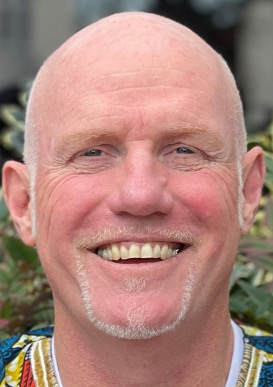The common sense link between people with mental health needs and the potential value
of restorative justice practices has been described in the academic literature in
many places. However, this notion has invariably remained at the stage of a good idea
in theory, with scarcely any progress into the practical implementation of such practices.
This webinar will provide an overview of the initial steps taken to formally embed
restorative justice and restorative practices in forensic mental health services in
settings in the United Kingdom. Our discussants will describe how restorative approaches
have begun to take root in each of their unique contexts, leading to reflections on
what has been achieved and the on-going challenges in light of their diverse mental
health settings. Cultural factors, as well as wider health economics, service pressures,
and societal pressures will be considered.
Guest Bios

Dr Gerard Drennan Ph.D. is a Consultant Clinical Psychologist and Psychotherapist,
and Head of Psychology & Psychotherapy in the Forensic Mental Health Service that
is part of South London & Maudsley NHS Foundation Trust in London. Gerard trained
as a psychologist in Cape Town and witnessed first-hand the important role transitional
justice, founded on restorative justice principles, played in the emergence of a new
democracy in South Africa in the 1990s. Gerard has worked to introduce restorative
justice practices into forensic mental health settings for more than a decade, including
making the case for this development through leading an implementation project in
the NHS, generating research evidence, publishing journal articles, and book chapters,
and delivering conference papers in the UK, Europe and North America. Gerard has
also served as Chair of Trustees of the Restorative Justice Council in the UK.
gerard.drennan@slam.nhs.uk

Sarah Cooper is a Senior Forensic Psychologist, based at Kent and Medway Partnership
NHS Trust in the south of England. In 2016 Sarah introduced restorative practice to
a secure forensic mental health service that supports adult men who have a history
of offending and high-risk behaviours; additional needs including intellectual and
developmental disabilities, complex trauma and mental health problems. Sarah undertook
research evaluating this implementation project in a group of service users who are
often excluded from access to restorative justice, and has begun to publish her ground-breaking
work through international conferences and publications.
sarah.cooper40@nhs.net

Dr. James Tapp Ph.D. is a Senior Lecturer in Forensic Psychology at the University
of Kingston, London. James is also training as a Forensic Psychologist Practitioner
at a High Security Hospital, that is part of the National Health Service in the UK.
James has worked in high secure mental health settings for almost two decades, with
people who have long-term severe mental health needs and have seriously harmed others
as well as themselves. Over this time, James has published research on the rehabilitation
of this population and has in recent years extended this to include the role Restorative
Justice can play in these settings. This includes supervising a current Ph.D. student
in a project looking at the compatibility of theories of Restorative Justice in a
forensic mental health context and impact on the identities of those taking part.
j.tapp@kingston.ac.uk

Fin Swanepoel grew up in Zimbabwe and came to restorative work more formally 12 years
ago, commencing in UK prisons as a Chaplain and now in Forensic Mental Health for
the past seven years. Fin is registered as an Advanced Restorative Justice Practitioner
with the Restorative Justice Council. In June 2022, Fin became the first (and currently
only) Restorative Justice Practitioner employed in this capacity within the United
Kingdom’s National Health Service. Fin is passionate and committed to being restorative
with people, with projects and with planning. He is working with and within systems
and institutions to enable them to be more restorative. He facilitates rehabilitation
programmes promoting restorative thinking with forensic mental health service users,
their families and supporters, as well as being a keen cyclist and deeply dependent
on the wild for inspiration and connection.
fin.swanepoel@slam.nhs.uk





